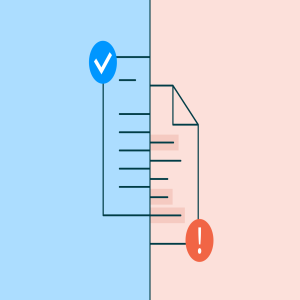A quick reflection on the past two years illustrates how quickly things can change. How fast our global community can go from business as usual to the unexpected and unplanned. And for those in education, it is safe to say that our learning landscapes have been transformed forever.
But what does that mean for academic integrity moving forward? And why is it important for us to stay tuned into both small and significant shifts? There are myriad reasons why we must cue into the emerging trends in academic integrity, but two factors rise to the top: mitigation of misconduct and the nurturing of student learning outcomes.
As humans, we innovate and adapt. But for every beautiful and better thing we build, so, too, is there a tool invented to cut a corner. With the increase of online instruction during the pandemic, many universities reported an uptick in misconduct. In a completely virtual world, many observe that there have been more opportunities for students to be tempted by word-spinners, online test-banks, and electronic cheating devices. Contract cheating, too, gained footing as essay mills offered appealing solutions to stressed students under pressure.
But for those aware of the growing trends in academic misconduct, there is a chance for mitigation. Students, educators, and administrators who see and understand these emerging threats can take informed, preemptive steps, creating structures and safety nets within their institutions. Whether it’s establishing a culture of academic integrity, crafting a thoughtful honor code, or using tools like Turnitin Originality, these measures can turn what may become a systemic crisis into a conversation.
Perhaps most important, however, is that we nurture student learning outcomes. We need to know what threats may hinder or harm a student’s authentic learning. When a degree is earned without merit; when an exam is taken improperly or a paper is miscredited, it damages the individual, the institution, and the overarching value of education. We must work together to cultivate learning at the foundational level, where real growth and transformational thinking can occur.
And so, whether it is mitigation–identifying misconduct opportunities at their root and taking steps to moderate them–or nurturing student learning outcomes, we must keep up with the trends. Because if we see what’s coming, then we can face it together, with integrity at our core.







